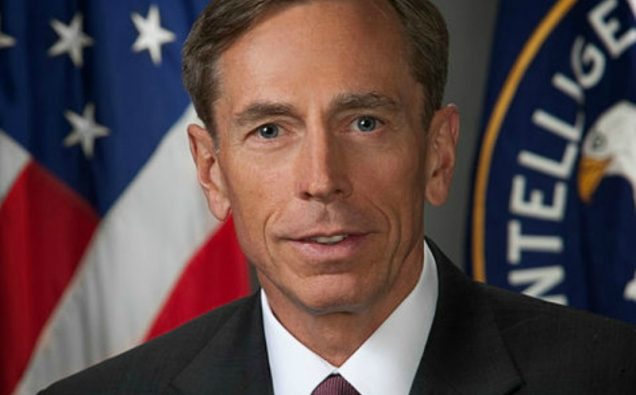
David Petraeus, former CIA chief and army general has cautioned against political rhetoric against Muslims, saying that kind of bigotry feeds into militant narratives and poses dangers for American national security and body politic.
The retired general, who commanded US forces in Afghanistan and Iraq – where the US worked with Muslims allies to combat terror threat – noted in a Washington Post opinion piece that the United States must succeed against terrorism which, despite success against al-Qaeda, has resurged in the form of groups like ISIS operating in Iraq and Syria.
Petraeus also emphasized the overlooked reality that the US has been fighting radicalization and militant threat with the help of Muslim allies both abroad – Iraq, Afghanistan, Syria and elsewhere – as well as at home.
He pointed out that “free and open societies such as ours depend on a sense of basic security to function. If terrorism succeeds in puncturing that, it can threaten the very fabric of our democracy — which is, indeed, a central element of the terrorist strategy.”
“For that reason, I have grown increasingly concerned about inflammatory political discourse that has become far too common both at home and abroad against Muslims and Islam, including proposals from various quarters for blanket discrimination against people on the basis of their religion.”
Petraeus related his thoughts to the current political context.
During the Republican primaries candidates including presumptive nominee Donald Trump, and Ted Cruz and Ben Carson, who have both dropped out, resorted to politics of fear in the aftermath of recent terror attacks in Europe and Sand Bernardino.
While Trump proposed a “total and complete” ban on Muslims entering the United States, Cruz came up with the idea of surveillance of Muslim neighborhoods, and Carson suggested that a Muslim should not make it to White House. Trump has lately said his proposal to ban Muslim immigration was a suggestion.
But Petraeus wrote of the responsibilities of politicians.
“Few responsibilities that our next president inherits will be more urgent, important or complex than thwarting these terrorist plans, reversing the conditions that have enabled their rise and combating the broader Islamist extremist ideology that animates them.”
He also rejected “attempts to justify these measures as necessary to keep us safe — dismissing any criticism as political correctness,” or the notion that such “divisive rhetoric as the excesses of political campaigns here and in Europe, which will fade away after the elections are over.”
“As policy, these concepts are totally counterproductive: Rather than making our country safer, they will compound the already grave terrorist danger to our citizens. As ideas, they are toxic and, indeed, non-biodegradable — a kind of poison that, once released into our body politic, is not easily expunged.”
He noted that American Muslims have been a vital partner in fighting terror.
“We should also acknowledge that patriotic Muslim Americans in our intelligence agencies and armed forces — many of them immigrants or children of immigrants — have been vital assets in this fight with radical Islam.
At the same time, Petraeus wrote he is not denying that the US is at war with what he called “Islamist extremism,” and noted that the fanatical ideology is “based on a twisted interpretation of Islam.”
He said it is precisely because the danger of such extremism is “so great that politicians here and abroad who toy with anti-Muslim bigotry must consider the effects of their rhetoric.”
“Demonizing a religious faith and its adherents not only runs contrary to our most cherished and fundamental values as a country; it is also corrosive to our vital national security interests and, ultimately, to the United States’ success in this war.”












